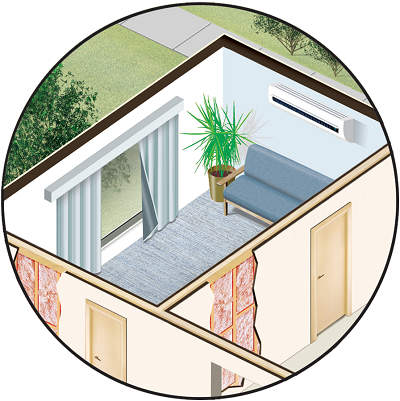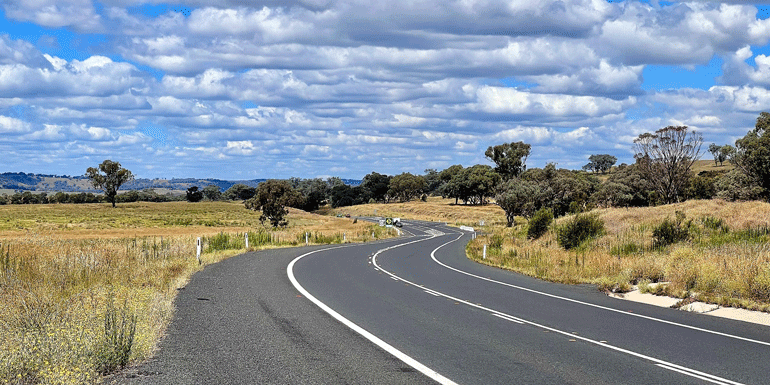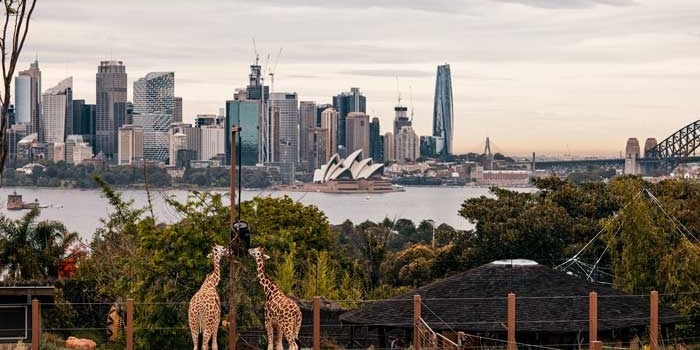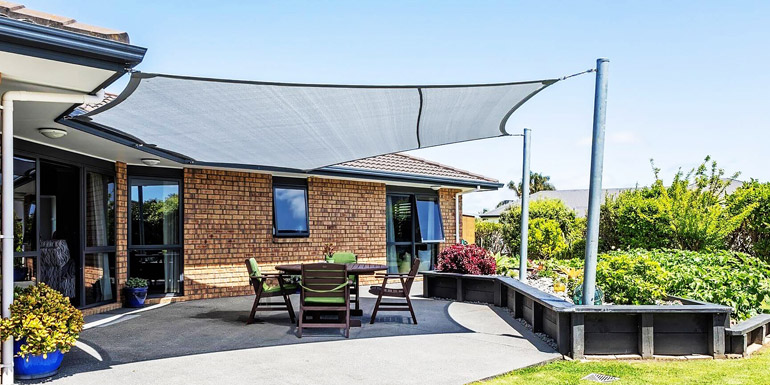About this case study
Heat
Households
Cooling solutions
By 2030, the Hunter region can expect up to 10 more days each year of 35°C or above. How can people prepare their homes and beat the heat?
Most Australian homes perform poorly in both hot and cold weather, and require a lot of energy to remain comfortable.
Sam Mella, Project Manager, Hunter Engagement Lead, BZE
BZE has developed an easy-to-read resource, Cooling Your Home, and a workshop series to help residents cool their homes during heatwaves.
Authored by Dr John J. Shiel, a specialist in adapting buildings to climate change and extreme weather events, the booklet Cooling Your Home explains and simplifies the science of extreme heat and offers smart and cost-effective strategies. There are retrofit suggestions, from ceiling fans to block-out blinds, light-coloured roofs to green walls, as well as practical strategies to create a ‘cool retreat’ and simple behavioural changes to survive heatwaves.

“Our booklet was designed to help all people, from renters to homeowners, people on a tight budget to those prepared to pay a bit more for the long-term return,” Sam says.
The booklet was supported by a series of five workshops that shared strategies to help Hunter residents beat the heat. Dr Shiel set the scene and five volunteer facilitators led break-out discussions. Initially planned as in-person events but held online in response to Covid-19 restrictions, the workshops attracted 114 participants, who praised the “super-knowledgeable speaker” and appreciated the “handy hints”.
The immediate legacy of the project is Cooling Your Home, a guide to home retrofits, appliances and adaptions for a hotter future. This accessible and attractive resource can be adapted by any local council to suit their own community’s needs.
“The feedback we’ve had from people is really heartening. People are starting to see that their houses aren’t suited to heatwaves and they want to learn how they can adapt their homes to stay cool, and to make changes to their behaviour so they don’t need to turn up the air-conditioning,” Sam notes.
The workshops offered some hidden benefits. “By connecting local government educators with local residents, we gained new insights for future programming, and participants told us they enjoyed meeting other residents and sharing knowledge,” Sam says.
We know, without adapting our behaviour and our homes, we will experience more discomfort and heat stress, more difficulty sleeping, more danger from bushfires, and possibly more power outages in extreme weather conditions. This project plays an important role in sharing knowledge and building climate resilience.
Sam Mella, Project Manager, Hunter Engagement Lead, BZE
This project was funded by an Increasing Resilience to Climate Change grant from the NSW Government.
Case studies

NSW councils are building climate risk into their business-as-usual planning and policies for the first time, thanks to products developed using NARCliM’s locally relevant climate modelled data.

Ensuring there’s enough water in the moat may not be a common challenge for those preparing for changing climate conditions.

Monash University's Climate Change Communication Research Hub applied NARCliM regional climate projections to visualise the projected increase in average summer temperatures across Australia's local government areas.
